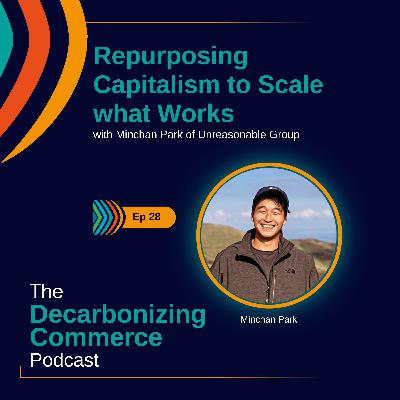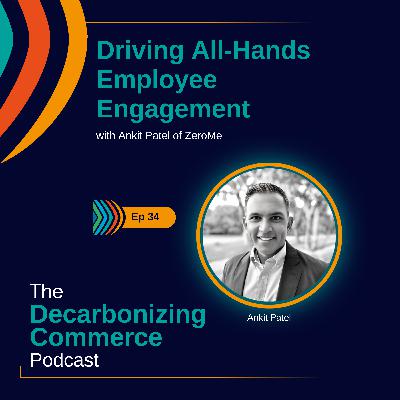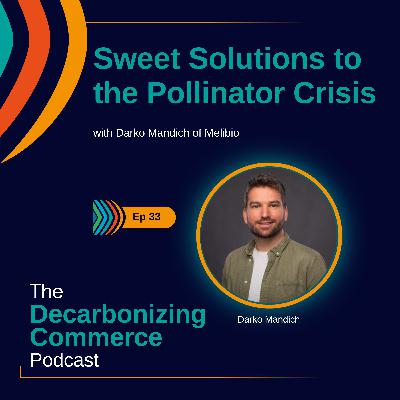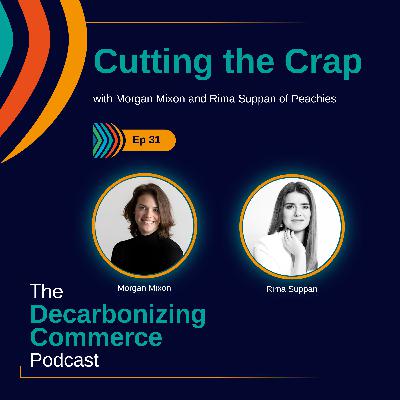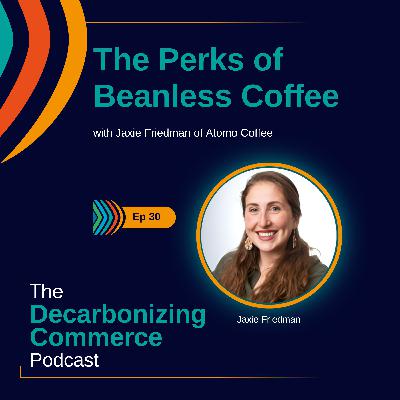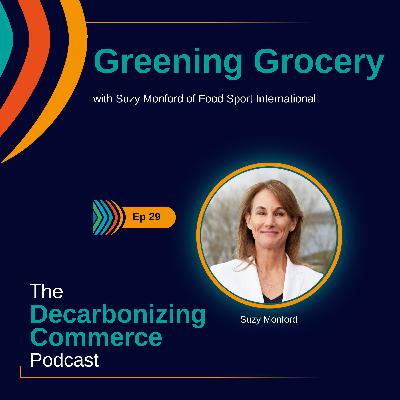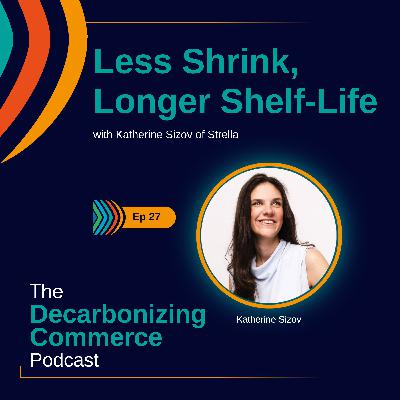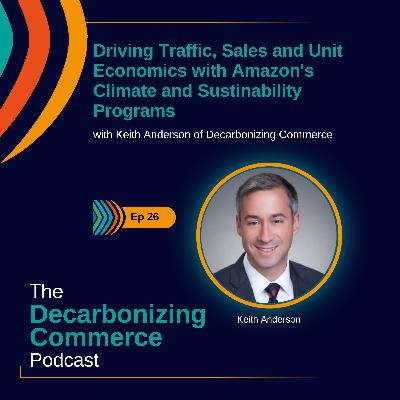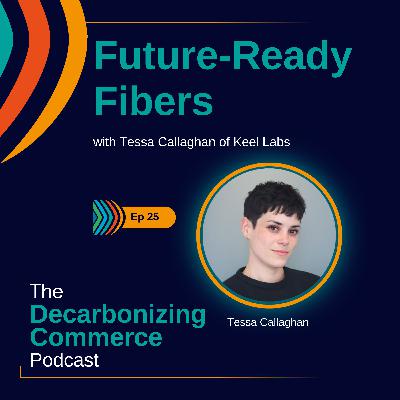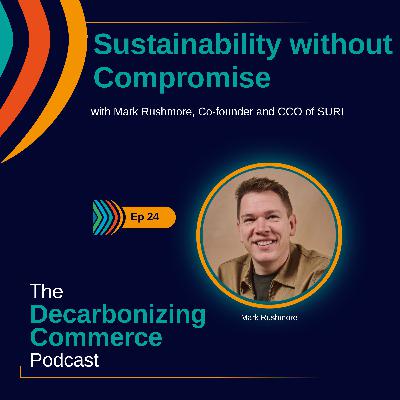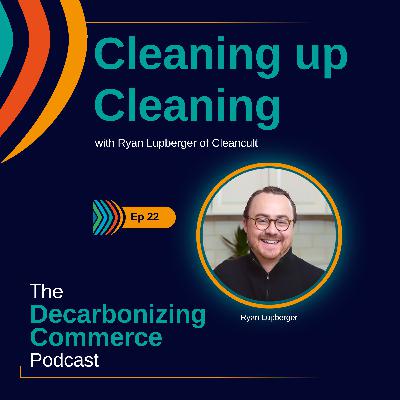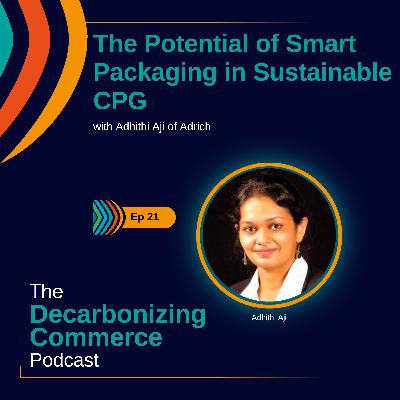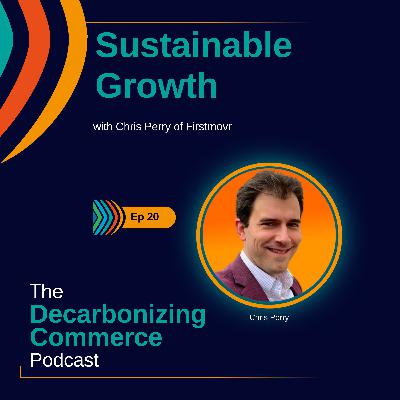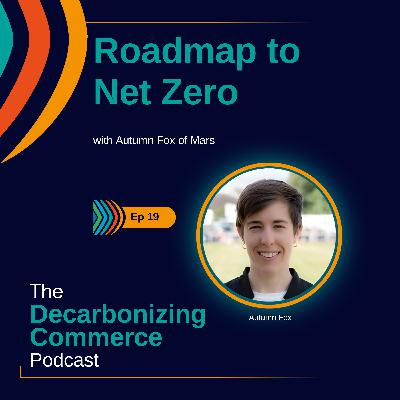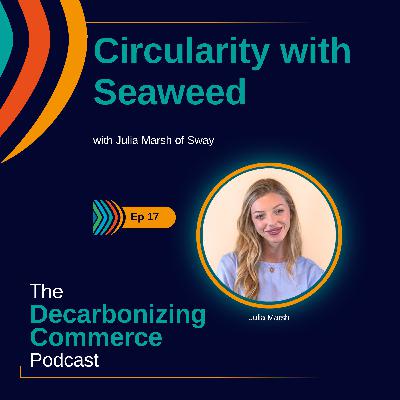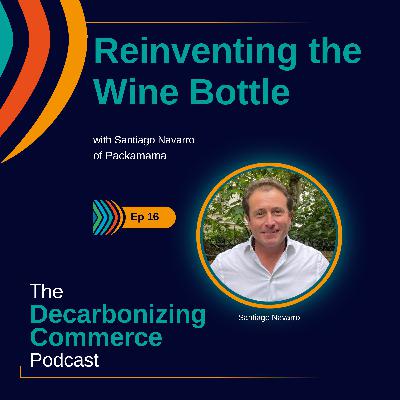Repurposing Capitalism to Scale what Works with Minchan Park of Unreasonable Group
Update: 2024-05-16
Description
In this episode of Decarbonizing Commerce, host Keith Anderson speaks with Minchan Park, director of portfolio selection at Unreasonable Group, a company helping scale growth stage, impact-driven ventures working on some of the world's biggest problems. They discuss the Unreasonable Fellowship program, the new Unreasonable Food collaboration with Mars, how Min and the team identify and prioritize companies for participation, what the experience is like for the entrepreneurs that are part of the program, and what Min is looking forward to next. Tune in to gather insight from Min’s perspective on these topics and more!
Learn more about Minchan Park:
- Link to Unreasonable's website
- Link to Minchan’s LinkedIn
To listen to the full episode join our Plus or Pro memberships at decarbonize.co:
Episode resources:
If you enjoyed this episode then please:
- Follow, rate, and review on Apple Podcasts
- Follow and rate on Spotify
Keith Anderson: Welcome to Decarbonizing Commerce, where we explore what's new, interesting, and actionable at the intersection of climate innovation and commerce. I'm your host, Keith Anderson, and together we'll meet entrepreneurs and innovators reinventing retail, e-commerce, and consumer products through the lenses of low carbon and commercial viability.
Welcome to the Decarbonizing Commerce podcast. I'm Keith Anderson. And my guest this week is Minchan Park, director of portfolio selection at Unreasonable Group. Min is responsible for Unreasonable's venture selection process, everything from sourcing to diligence, and of course, selection, helping scale growth stage, impact-driven ventures that are working on some of the world's biggest problems.
Before Unreasonable, Min worked at HG Capital, a leading European private equity fund, and previously was a strategy consultant at OC&C Strategy in London. If you listened to episode 19 of the show with Autumn Fox of Mars, you heard us briefly discuss the Unreasonable Food Program that Mars and Unreasonable Group are launching together.
They've just announced the first cohort of Unreasonable Food fellowships, 15 companies that are going to be participating in the program. And Min and I talked about how the program works, how he and the team identify and prioritize some of the companies that participate, what the experience is like for the entrepreneurs that are part of the program and what he's looking forward to next.
So we get into all that and more, and I'm excited for you to meet Min Park of Unreasonable Group.
Min, thanks for joining the Decarbonizing Commerce podcast. Great to have you with us.
Minchin Park: Hi Keith, thanks for having me on here.
Keith Anderson: We're recording on a Friday, and if I'm not mistaken, you're five or six hours ahead of me, so appreciate you joining me on a Friday afternoon.
Minchin Park: No, this is, this is great. The weather's brilliant in London, for once. It's finally turned a corner, so, you know, happy days. It's a wonderful way to finish off the week.
Keith Anderson: Enjoy it while you can.
Minchin Park: Yeah, it doesn't last very long.
Keith Anderson: No, it often doesn't. Well, I thought maybe a good place to start would be, for those that may not be familiar with Unreasonable Group itself, maybe you can describe what the organization is all about.
Minchin Park: Yeah, happy to do that. I think unreasonable is a pretty unique organization, if I can say that myself. We're not a traditional venture capital firm, which is what a lot of people think we are when, when they come across Unreasonable. We're probably closer to an accelerator, but we still don't use the word accelerator because it's a little bit different still.
I would say at its core, Unreasonable is more of a community. Essentially a community of entrepreneurs, visionaries, capital movers, and corporate partners who all come together essentially to support these entrepreneurs with big visions and are tackling the world's greatest challenges essentially. We, you know, galvanize this community to draw direct and indirect investments into these companies, but we do so much more than just that.
So we provide a lot of the relational support for these founders and to the ventures themselves to help reduce the friction to scale in whichever way possible. And
capital is one obvious friction to scale, of course, that is front of mind for everyone. But there are other frictions to scale for a lot of these founders like, you know, setting up a strategic sales function as the company grows, or setting in place a really strong company culture, navigating, and helping set new regulation standards, or scaling up manufacturing. So, we, we help with all of those things through the network that we provide and the expertise of the people in our community. I would say we are an invite-only community. So we really, we are trying to find the next generation of solutions here today and tomorrow that are making a real dent in the world in solving the world's most intractable challenges.
And once the entrepreneur has been identified and they're brought into the community, we we do everything we can on a personal level for the founders themselves, or professionally, for the venture to support these entrepreneurs to scale faster and further. This fundamentally goes back to the mission and the ethos where unreasonable essentially believes that entrepreneurship is the fastest way to solve planetary scale problems, using the power of capitalism in the right way.
And essentially, you know, by doing this, I guess we're also out to show that, doing well in business and doing good in the world, like, don't really have to be at odds with each other.
If you, if you go to Unreasonable's website, it's, you'll see this simple tagline called Repurpose Capitalism. What we're trying to say here is, you know, capitalism doesn't have to be associated with endless resource extraction or competitive advantage or costs to rise to winner takes all markets.
We're trying to show that you know, the future here, can be one of abundant resources, and abundant outputs, and collaborative advantage. Yeah. So I'll, I'll pause there. And that's a bit about unre, what, what Unreasonable does.
Keith Anderson: I think that's really helpful. Just briefly to play back a little bit of what I heard, some similarities to venture capital firms and to accelerators, but in addition to being a hybrid of both of those models, the invitation-only and sort of selective community component is one of the other things that differentiates you.
Obviously, the mission, very focused on, as you say, planetary scale challenges and backing entrepreneurs and ventures in pursuit of making a dent in those problems. You know, I, I think that's a pretty clear summary.
Minchin Park: Yeah. and then I think the primary focus of Unreasonable is always with the entrepreneurs and the amazing work that they're doing. But if I could add a secondary aim here, it's also about de-siloing the market. So, if you, if you zoom out, there are a lot of different players and entrepreneurs on such a small part of the playing field.
There are investors and capital movers. There are also large institutional players out there. Like some of our corporate partners like Mars, Barclays, who have traditionally been associated with you know, large emission footprints. And in the case of Barclays, you know, funding coal, oil and gas industries.
And so they don't particularly have the best rep, like, in the world. But, you know, these companies won't just go away. As much as the average citizens would love them to, they sort of need a way out, to re-strategize so they can become part of the solution, and certainly they have the size and resources to help the entrepreneurs, so, I guess the secondary mission here is, why not offer them a ledge?
Why not instill this collaborative advantage that I was talking about and create a win/win situation for both the corporates as well as the entrepreneurs? And so I think that's also what we're out to do. So we, we essentially design initiatives, like the one with Barclays or the one with Mars.
And we try to connect them to the entrepreneurs that are really solving these big challenges. And essentially help them help one another. And so, you know, we're not just proving to the world that doing well and doing good can be, done together, we're also proving this to our partners and sort of changing them from the inside.
</di
</di
Comments
In Channel

